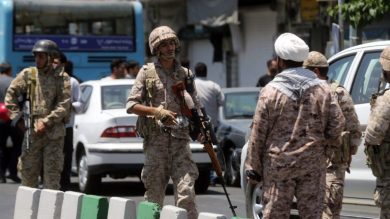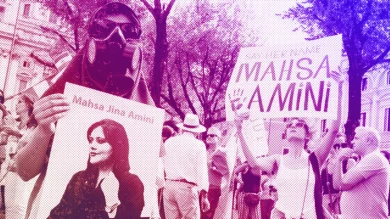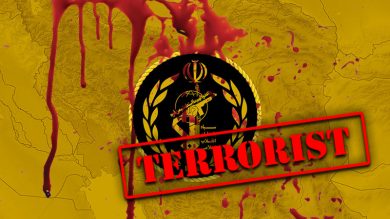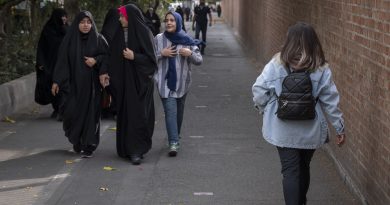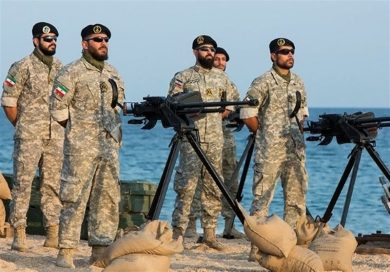The Islamic Revolutionary Guard Corps (IRGC) is best known for its role in suppressing dissent, exporting terrorism, and managing proxy wars. But beyond its military and ideological mission, the IRGC has built something even more dangerous: an economic empire that dominates nearly every sector of Iran’s economy, entrenches corruption, and enriches itself at the expense of ordinary citizens.
This article reveals how the IRGC hijacked Iran’s economy—through front companies, no-bid contracts, smuggling operations, and coercive control. It examines the origins of this system, its expansion under sanctions, its devastating impact on Iran’s middle class and private sector, and why dismantling the IRGC’s economic machine is essential for democracy, accountability, and human rights.
1. From Soldiers to Tycoons: The IRGC’s Economic Origins
The IRGC’s transformation into an economic powerhouse began in the aftermath of the Iran-Iraq War (1980–1988). With vast manpower, a loyal ideological base, and growing political influence, the regime gave the IRGC control over reconstruction projects as a reward.
This laid the foundation for what would become Khatam al-Anbiya Construction Headquarters—the IRGC’s main engineering and infrastructure conglomerate.
2. Khatam al-Anbiya: The Engine of IRGC Wealth
Founded in the 1990s, Khatam al-Anbiya is a construction giant and the crown jewel of the IRGC’s economic holdings. It is estimated to control thousands of subsidiaries and is active in sectors such as:
• Oil and gas infrastructure
• Telecommunications
• Mining and heavy industry
• Roads, dams, and tunnels
• Port construction and management
Thanks to direct awards from the Supreme Leader’s office, the IRGC wins no-bid contracts and often undercuts private firms, consolidating power with each project.
3. Monopoly by Design: No-Bid Contracts and Military Favoritism
Through its close relationship with the Supreme Leader and security ministries, the IRGC routinely bypasses competitive bidding and gets exclusive access to lucrative deals.
Examples:
• Contracts to develop South Pars gas field phases
• Port control and logistics projects in Chabahar and Bandar Abbas
• Telecom surveillance infrastructure for monitoring citizens
Civilian ministries and private companies simply cannot compete, and dissent is punished—sometimes violently.
4. IRGC-Owned Banks, Insurance, and Conglomerates
The IRGC has also expanded into financial services, creating a web of influence across Iran’s banking, investment, and insurance sectors.
Key Entities:
• Ansar Bank (now merged into Sepah Bank)
• Mehr Eqtesad Financial Group
• Etemad-e-Mobin Consortium (owns parts of Iran’s telecom sector)
These institutions are used for:
• Laundering regime funds
• Facilitating sanctions evasion
• Managing pensions for IRGC members
• Funding front companies abroad
5. Sanctions Evasion as a Business Model
Rather than weakening the IRGC, sanctions have often forced the regime to rely more heavily on the IRGC’s covert networks.
Tactics:
• Shell companies registered in Dubai, Malaysia, and Turkey
• Front companies in Lebanon, Iraq, and Venezuela
• Cryptocurrency mining and exchanges
• Barter trade with rogue states (e.g., oil-for-gold swaps)
Smuggling oil, arms, and other goods generates billions for the IRGC—money used to fund proxy wars and domestic repression.
6. Smuggling and the Shadow Economy
The IRGC operates a parallel economy that thrives on smuggling and tax evasion.
Known Smuggling Activities:
• Cigarettes, fuel, and consumer goods via illegal ports
• Weapons to proxies in Yemen, Iraq, and Syria
• Narcotics trafficking through Afghanistan and Baluchestan routes
Ports controlled by the IRGC (like Bandar Abbas) serve as hubs for unregulated imports and exports. Meanwhile, ordinary merchants are heavily taxed or jailed for minor infractions.
7. The Impact on Ordinary Iranians
While the IRGC grows richer, Iran’s private sector is suffocated:
• Small and medium businesses struggle to survive in an uncompetitive environment
• Skilled professionals face political screening or IRGC monopolies
• Unemployment and inflation soar as public funds go to defense projects instead of public services
• Corruption and bribes become normalized for business permits and bank loans
Economic inequality is now worse than ever, and IRGC wealth is built on public poverty.
8. Corruption, Cronyism, and Coercion
The IRGC uses its security role to intimidate rivals and suppress investigations:
• Journalists exposing corruption face arrest or exile
• Whistleblowers disappear or are imprisoned
• Judges and regulators are often complicit or powerless
This has made the IRGC untouchable inside Iran. Its commanders have become billionaires, while thousands of Iranians live below the poverty line.
9. Case Study: The Telecom Takeover
In 2009, Etemad-e-Mobin, an IRGC-linked consortium, acquired a 50%+1 stake in Telecommunications Company of Iran (TCI)—the country’s largest telecom provider.
Consequences:
• IRGC gained control over phone surveillance and internet infrastructure
• SMS censorship and eavesdropping increased
• Surveillance of protesters and dissidents became more efficient
• Profits flowed to IRGC commanders and affiliated entities
This privatization was less about business—and more about power.
10. IRGC Front Companies Abroad
The IRGC uses foreign-registered businesses to:
• Access the global banking system
• Ship oil and weapons covertly
• Purchase dual-use technologies banned under sanctions
Notorious Fronts:
• Kasco Group (Malaysia, China)
• Rahbaran Omid Darya Shipping Company
• Yas Holding (linked to corruption scandal involving $2.5B in embezzled funds)
International pressure has exposed some of these entities, but many continue to operate under new names.
11. The Supreme Leader’s Blessing
Supreme Leader Ali Khamenei has repeatedly defended the IRGC’s economic role as “necessary for the protection of the revolution.” Under his direction:
• The IRGC has become more powerful than the elected government
• Budgets for the IRGC continue to grow even during economic crises
• Accountability is blocked by his unelected oversight structures
Without challenging this structure, real economic reform is impossible.
12. Sanctioning the Economic Web
To dismantle the IRGC’s financial empire, governments must:
• Sanction not only the IRGC but all of its subsidiaries, front companies, and banks
• Apply secondary sanctions to international firms doing business with IRGC-linked entities
• Track and block cryptocurrency flows and shell corporations
• Use Interpol red notices and criminal indictments for financial crimes
This requires coordinated action from the U.S., EU, UK, Canada, Japan, and regional allies.
13. Civil Society Response and Whistleblowing
Despite repression, many Iranians inside and outside the country have taken steps to expose the IRGC’s corruption:
• Leaking contracts and emails
• Launching independent reporting platforms
• Filing complaints with international anti-corruption watchdogs
• Pressuring tech companies and banks to block IRGC access
These efforts must be protected and supported by the global community.
14. What Can the International Community Do?
• Designate the IRGC as a terrorist organization in all major jurisdictions
• Block IRGC commanders and their families from international travel, schooling, and financial access
• Audit foreign-owned companies operating in Iran for indirect IRGC links
• Support sanctions enforcement technology and intelligence-sharing among allies
• Empower Iranian civil society, media, and tech experts to track and expose IRGC assets
15. What’s at Stake
This isn’t just about corruption. It’s about control.
The IRGC’s economic empire:
• Funds wars from Yemen to Gaza
• Pays for torture chambers and surveillance tech
• Undermines democracy by outcompeting elected institutions
• Entrenches theocratic authoritarianism through wealth and coercion
Breaking the IRGC’s economic grip is a moral, political, and strategic imperative.
Conclusion: End the Economic Occupation
The IRGC doesn’t just own tanks—it owns oil fields, highways, mobile networks, and ports. It doesn’t just crush dissent—it rigs the economy against its own people.
Join Our Newsletter!
Stay informed with the latest updates, news, and ways to take action in the fight for justice and global security. Sign up now to get updates delivered straight to your inbox!

